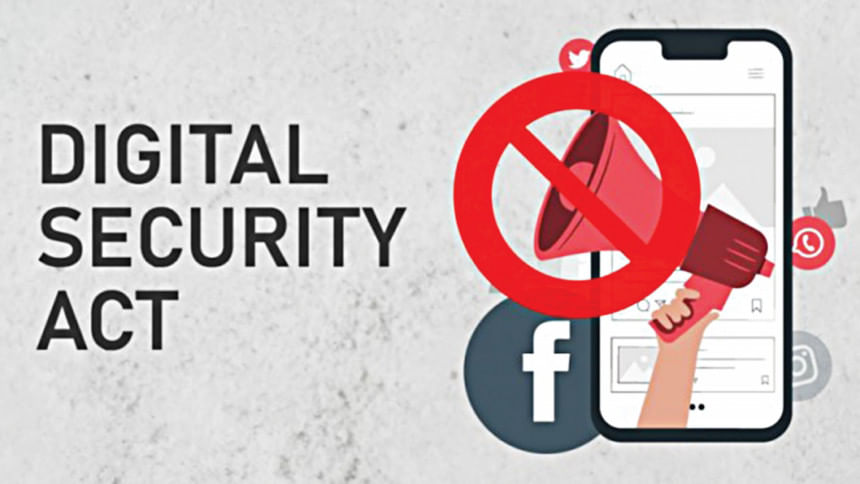DSA being used to choke freedom of speech and expression

As citizens of an independent, democratic country, we are deeply disturbed by the number of cases under the Digital Security Act that seems to have been misused to harass and intimidate dissenting voices rather than to protect the rights of the people. According to Article 19, last year, 457 people have been held under this Act, including 75 journalists who have been prosecuted.
What is most disturbing is the draconian nature of this Act—as many as 14 of the 20 sections of the Act are non-bailable. Although a judge can still decide to give bail if he or she wants to, we have seen how difficult it has been for many of the accused to get bail.
That a record number of people from various professions—journalists, teachers, students, folk musicians, cultural activists etc—were prosecuted and arrested gives a very ominous impression of the level of intolerance for divergent views. Article 19 has found through its research that most of the complainants were either ruling party members or ruling party parliamentarians, union parishad chairpersons and mayors. Some were law enforcers.
Section 25 criminalises anyone using a website or digital device for deliberate distribution of information that is "attacking or intimidating in nature" or false information intended to "irritate, humiliate, defame, embarrass or discredit a person". This section also considers it a crime if someone publishes material that is deemed as defaming the state or for publishing fully or partially distorted information or data, knowing that it is false. Even the High Court has asked the government to explain why Section 25 and Section 31 of the DSA should not be considered unconstitutional, following a writ petition filed by nine people.
Sections of this Act give blanket prohibitions on publication of content on digital platforms with vague and unspecified offences, giving scope to abuse the law in order to harass individuals.
That these cases have seen a sharp spike during the pandemic year of 2020 is especially puzzling and disquieting.
It is indeed tragic that we live at a time when political satire and criticising a weak healthcare system on social media can land individuals in jail, as has been the case recently. Are there not much worse crimes being committed in this country that deserve more attention and redress? Does the punishment of months in jail without granting of bail, being deprived of seeing family members, fit the crime of posting a cartoon, writing a comment or sharing a post that someone arbitrarily decides to be offended by and claims to be anti-state, anti-religion or anti-peace?
Laws must act to protect the ordinary citizens' rights. The DSA has, in most cases, been applied to do just the opposite. The government must put a stop to its abuse.

 For all latest news, follow The Daily Star's Google News channel.
For all latest news, follow The Daily Star's Google News channel. 



Comments